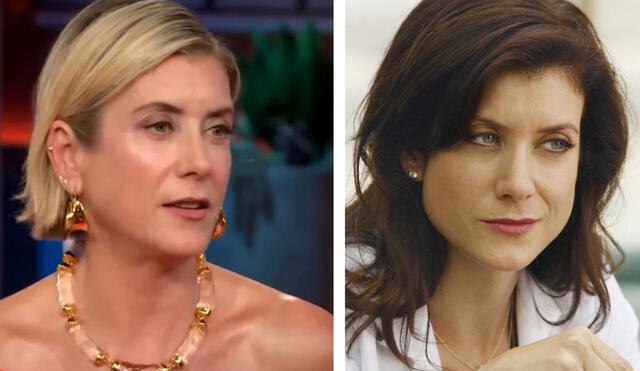Grey's Anatomy star Kate Walsh’s brain tumor journey: Subtle signs you shouldn’t ignore
Actress Kate Walsh talked about her diagnosis and highlighted early cancer detection.

Back in 2015, at the age of 48, actress Kate Walsh—best known for her roles in “Grey's Anatomy” and “Private Practice”—received a diagnosis of a benign brain tumor. This unexpected health challenge influenced her perspective on early cancer detection and preventive healthcare, as her parents struggled with the disease.
Recently, Kate Walsh made an appearance on The Kelly Clarkson show, where she opened up about how she has been affected by cancer throughout her life, including her brain tumor diagnosis. She also stated how new technology that is helping people detect numerous cancers early, so that they have more options for treatment.
Kate Walsh's health journey
Walsh's diagnosis came as a shock, especially considering her family's history with cancer. Both of her parents battled the disease: her father succumbed to lung cancer, while her mother survived breast cancer. The Grey's Anatomy star revealed that she experienced both physical and cognitive issues before doctors diagnosed her with a brain tumor, which was about the size of a small lemon. Initially, Walsh attributed her symptoms to menopause, as many of the signs overlapped.
Walsh stated that she had surgery to remove the growth of her tumor, which was later revealed to be a benign meningioma. According to the Mayo Clinic, meningiomas are “brain tumors that start in the membranes around the brain and spinal cord” and they are the most common type of benign brain tumors.
Advocacy for early detection of cancer
In light of her personal experiences, Walsh emphasized the critical importance of early cancer screenings. She advocates for individuals to be vigilant about their health, encouraging regular medical check-ups and timely screenings. Walsh's message reflects how early detection can significantly improve treatment outcomes and save lives.
Walsh's parents lost their lives to cancer, and she faced her own health scare after being diagnosed with a brain tumor. Now, she is actively raising awareness about the crucial role of screenings as well as other preventive healthcare. There are mainly five proactive cancer screenings recommended by the U.S. Preventive Services Task Force:
- Breast
- Cervical
- Lung
- Colorectal
- Prostate — males ages 55 to 69 should consult with their doctor about whether to undergo screening.












